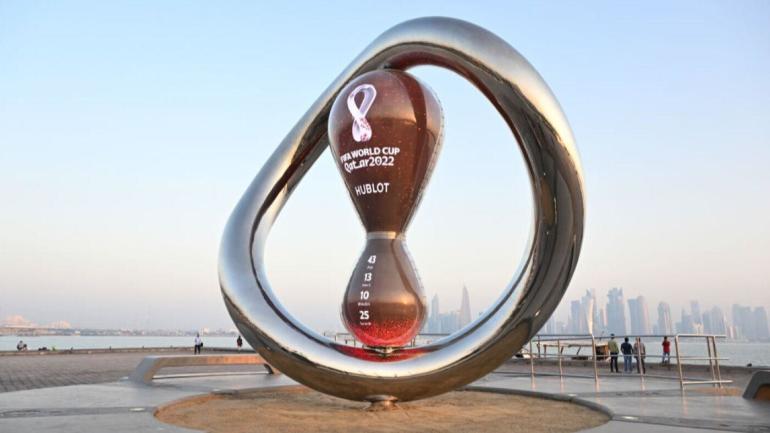
Qatar World Cup chief Nasser Al Khater confirmed Thursday that there would be designated areas at the tournament for drunken fans to be able to sober up, according to a report by Sky News. The areas are part of an effort by the Qatar World Cup to control public drunkenness as an alternative to arrests and jail time with respect to the nation's laws against public drinking.
Due to Islamic law, alcohol sales are heavily restricted in Qatar, and consumption of alcohol is normally only lawful in hotel restaurants and at bars with licenses to serve. However, the nation has relaxed its laws for the World Cup, allowing alcohol to be served in fan zones and outside stadiums.
Fans who end up in the "drunk tanks" at the World Cup will reportedly be held there until they are deemed sufficiently sober, and are then to be released with a warning.
"There are plans in place for people to sober up if they've been drinking excessively," Al Khater said. "It's a place to make sure that they keep themselves safe, they're not harmful to anybody else."
Qatar having to amend its laws on alcohol is just one of the ways in which it has had to bend in order to host the World Cup, having been awarded the tournament in 2011 despite allegations of bribery and corruption tainting their bid. The country's labor laws and the suffering of migrant workers has been a sticking point in criticism of the country hosting the World Cup, with three work-related deaths at stadiums and potentially more on wider infrastructure work. The nation has improved its labor laws and introduced a minimum wage.
Another point of contention is LGBTQ+ rights, as homosexuality is a criminal offense in Qatar punishable by fines or jail time. Despite the nation's religious-based laws, Al Khater said that gay fans attending the World Cup would be allowed to hold hands and display pride symbols.
"All we ask is for people to be respectful of the culture," Al Khater said. "At the end of the day, as long as you don't do anything that harms other people, if you're not destroying public property, as long as you're behaving in a way that's not harmful, then everybody's welcome and you have nothing to worry about."
![[object Object] Logo](https://sportshub.cbsistatic.com/i/2020/04/22/e9ceb731-8b3f-4c60-98fe-090ab66a2997/screen-shot-2020-04-22-at-11-04-56-am.png)

















